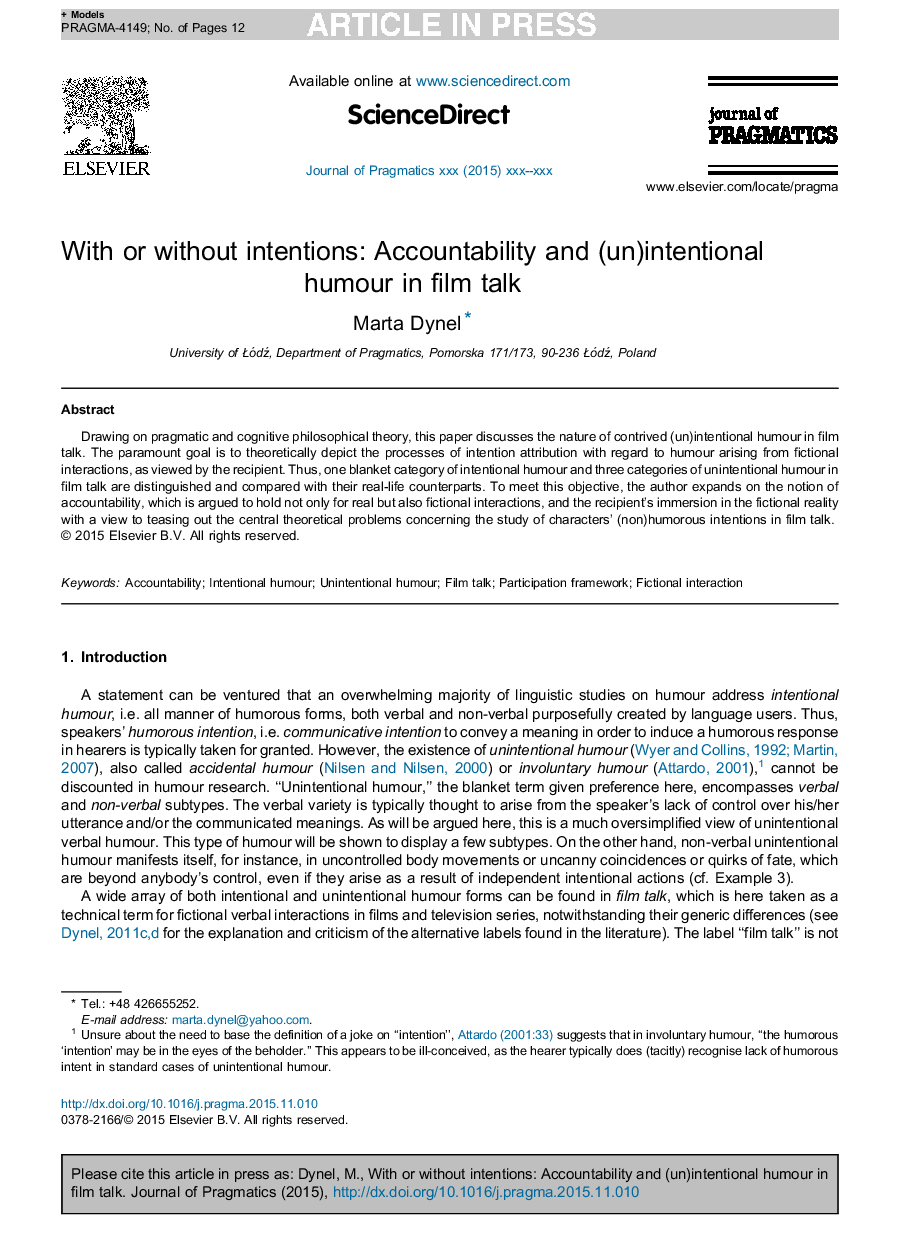| Article ID | Journal | Published Year | Pages | File Type |
|---|---|---|---|---|
| 7297923 | Journal of Pragmatics | 2016 | 12 Pages |
Abstract
Drawing on pragmatic and cognitive philosophical theory, this paper discusses the nature of contrived (un)intentional humour in film talk. The paramount goal is to theoretically depict the processes of intention attribution with regard to humour arising from fictional interactions, as viewed by the recipient. Thus, one blanket category of intentional humour and three categories of unintentional humour in film talk are distinguished and compared with their real-life counterparts. To meet this objective, the author expands on the notion of accountability, which is argued to hold not only for real but also fictional interactions, and the recipient's immersion in the fictional reality with a view to teasing out the central theoretical problems concerning the study of characters' (non)humorous intentions in film talk.
Related Topics
Social Sciences and Humanities
Arts and Humanities
Language and Linguistics
Authors
Marta Dynel,
